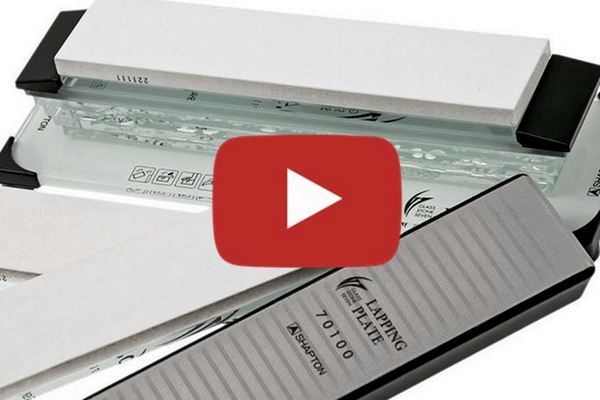Shapton Sharpening Stones Frequently Asked Questions
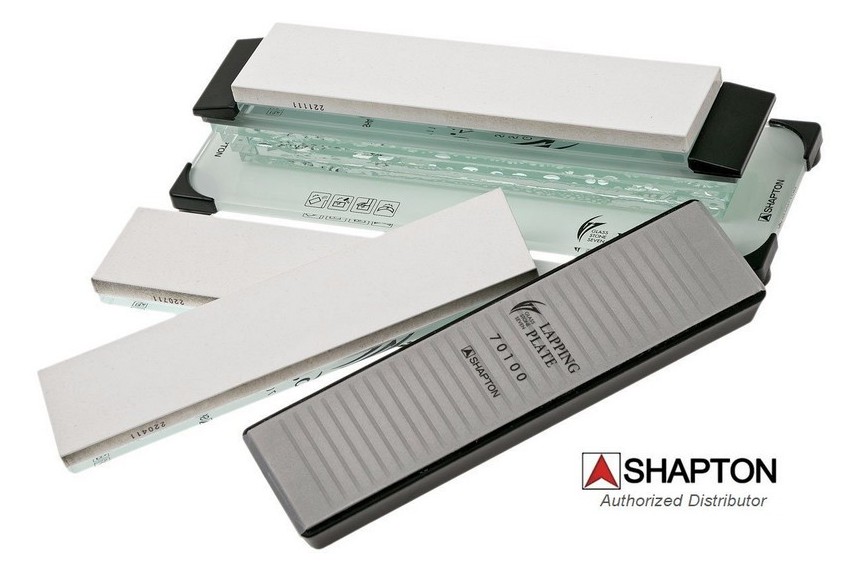
Question: Who manufactures Shapton Sharpening Stones and where are they made?
Shapton Stones are manufactured by Shapton Co., Ltd. in Tochigi, Japan
Question: Do you buy your products direct from Shapton or through a third party?
We buy our products directly from Shapton Co., Ltd. in Tochigi, Japan. We are an authorized Shapton Distributor for the USA and Canada. When you buy from us you can be assured of receiving authentic Shapton products.
Question: Do Shapton stones need to be soaked in water before use?
No, Shapton stones do not need to be soaked in water before using them like other water stones. One of the unique properties of Shapton stones is the high density of sharpening abrasives in each stone. Because of this high density of abrasives you can simply splash on a little water and start sharpening.
Question: What makes Shapton Stones work so much better?
First, Shapton Glass Stones are made with a very high quality abrasive. They are also the most carefully graded ceramic particles on the market.
Second, Shapton stones have a very high density of those particles distributed throughout each stone. This high density of abrasives gives them their durability.
Third, the key aspect of Shapton Stones is the high degree of uniformity in the distribution of the particles. This even particle distribution results in fast honing.
This combination of quality abrasives, uniform particle size and the dense, even distribution of those particles results in fast sharpening and low maintenance unequaled by others.
Question: What is a GlassStone?
A Shapton Glass Stone is made of abrasive particles that are bonded to a flat, tempered glass backing. The grit and micron equivalents are marked on the glass side of the stone. The abrasive side that used for sharpening is white.
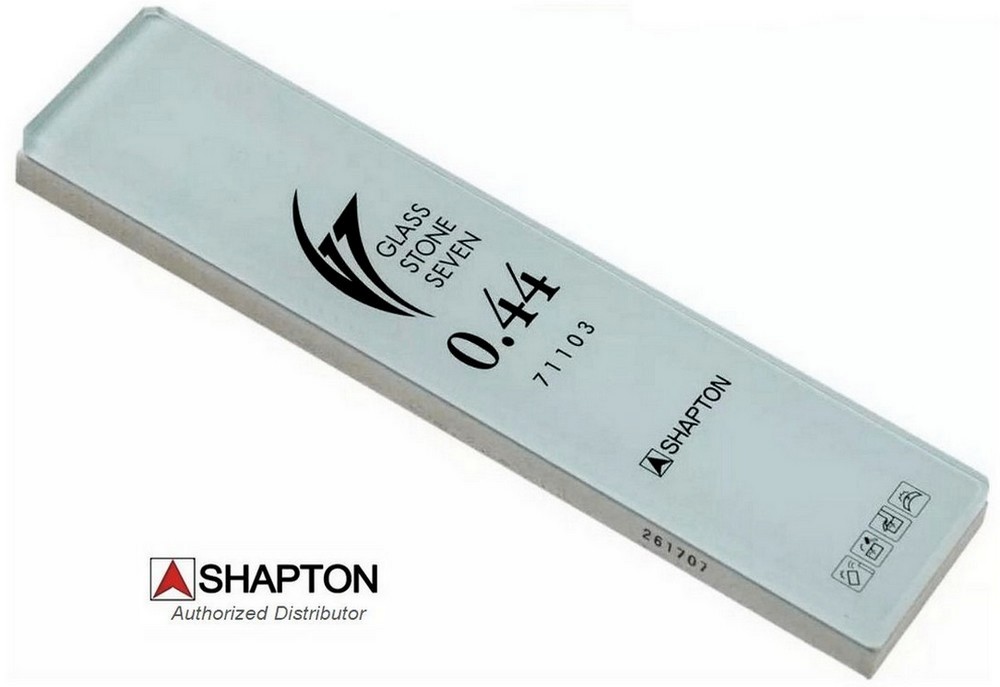
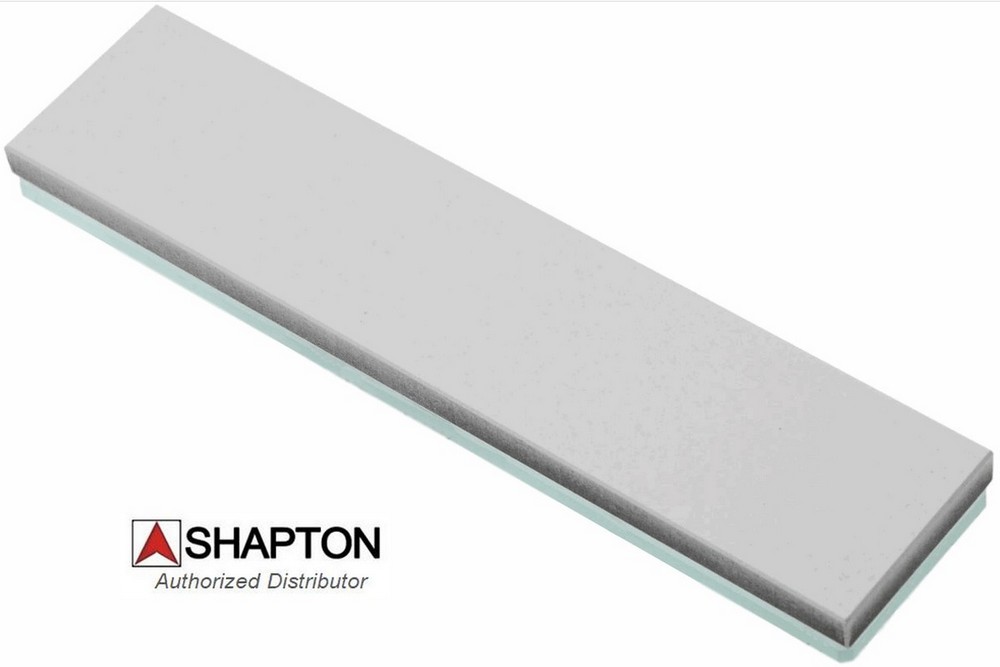 Question: What grits of Shapton stones do you recommend for everyday kitchen knives?
Question: What grits of Shapton stones do you recommend for everyday kitchen knives?
We recommend using the 1000 and 4000 grits for kitchen knives. They are two of the most popular grits sold and for good reason. The 1000 works fast enough to get your edge back in shape quickly and the 4000 grit leaves a very sharp edge. If you don't mind spending a little extra time sharpening, the 2000 and 6000 grits are also a nice combination. The 2000 grit alone is a good all-purpose stone. If I could only have one stone it would be the Shapton 2000. The 6000 leaves a polished edge that allows the chef to make even the most delicate cuts.
When we sharpen we are putting scratches on the edge of the blade. As we progress into higher grits those scratches get less and less pronounced. The grit used is not nearly important as establishing the apex.
The Shapton Glass Stone Seven stones are the same quality as the larger size Shapton Glass Stones. The only difference is the size. The Glass Seven Stones are 6.3" x 1.45" which is a bit smaller than the larger 8.25" x 2.75" size of the standard Shapton Glass Stones.
However, the abrasive on the Shapton Seven stones is 1.4 times thicker than standard Shapton Glass Stones. The "Seven" in the name refers to the 7mm thick layer of abrasive on the stones. The abrasive thickness on the standard Glass Stones is 5mm.
Question: Should I use water or oil with Shapton Stones?
It is best to use plain cool water with Shapton stones. You don't need to use detergent or any other lubricant. It is ok to use oil with the stones. However, once you have used oil on a stone you should probably stay with oil for that stone. You can go back to using water but it would be best to completely remove any oil from the stone before doing so.
Question: Do I need to build up a slurry to use any of the Shapton Stones?
No, you do not need to build a slurry. Shapton sharpening stones have a very high density of abrasives so they can be used without a slurry. It is ok if a slurry builds up but they do equally well with slurry or no slurry.
Question: Do I need to sharpen under running water?
No, you can just wet the stone with water and start sharpening. Personally, I like to rinse the slurry off once in a while. It helps me to see the edge better. It is really a matter of personal preference.
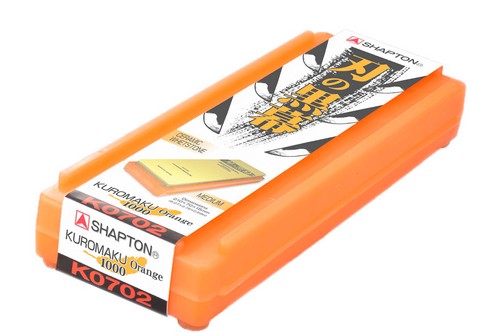
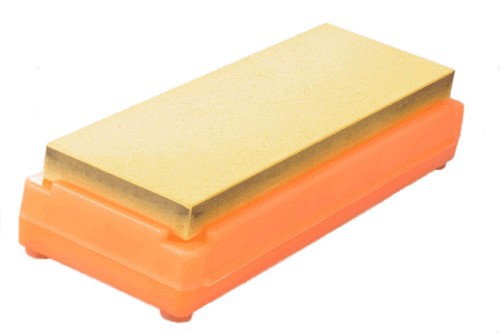 Question: What is the difference between the Shapton Kuromaku and Shapton Professional ?
Question: What is the difference between the Shapton Kuromaku and Shapton Professional ?
The only difference is the printing on the Kuromaku is in Japanese and the printing on the Professional is in English.
Question: Which side of the Kuromaku should I use for sharpening?
It does not matter which side you use. Both side are the same except that one side is printed and the other is not.
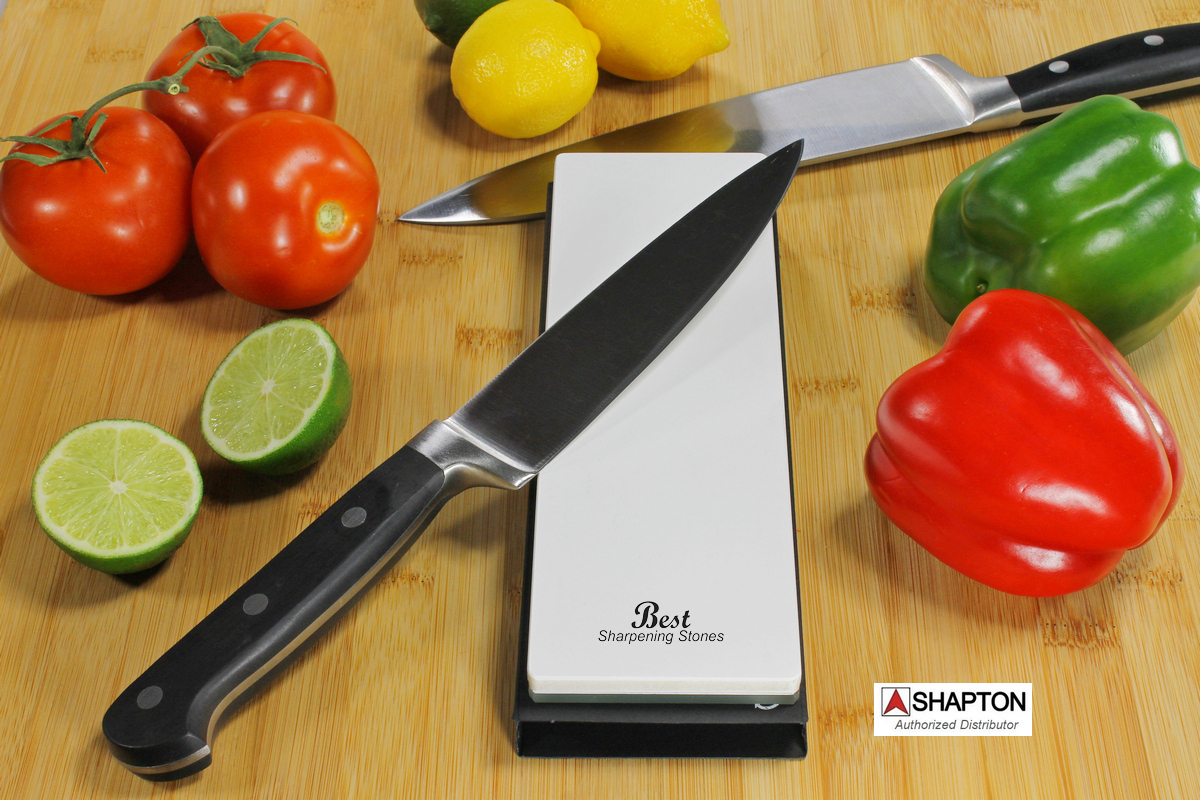 Japan is renowned for its long tradition of quality blades and sharpening stones. Shapton is committed to ensuring this tradition continues. They simply will not compromise their standards of quality. Shapton stones may cost a little more but you are actually getting a much better value.
Japan is renowned for its long tradition of quality blades and sharpening stones. Shapton is committed to ensuring this tradition continues. They simply will not compromise their standards of quality. Shapton stones may cost a little more but you are actually getting a much better value.
We are an authorized Shapton Distributor for the USA and Canada. When you buy from us you can be assured of receiving authentic Shapton products.Shapton Stones are manufactured by Shapton Co., Ltd. in Tochigi, Japan
Question: Do you buy your products direct from Shapton or through a third party?
We buy our products directly from Shapton Co., Ltd. in Tochigi, Japan. We are an authorized Shapton Distributor for the USA and Canada. When you buy from us you can be assured of receiving authentic Shapton products.
Question: Do Shapton stones need to be soaked in water before use?
No, Shapton stones do not need to be soaked in water before using them like other water stones. One of the unique properties of Shapton stones is the high density of sharpening abrasives in each stone. Because of this high density of abrasives you can simply splash on a little water and start sharpening.
Question: What makes Shapton Stones work so much better?
First, Shapton Glass Stones are made with a very high quality abrasive. They are also the most carefully graded ceramic particles on the market.
Second, Shapton stones have a very high density of those particles distributed throughout each stone. This high density of abrasives gives them their durability.
Third, the key aspect of Shapton Stones is the high degree of uniformity in the distribution of the particles. This even particle distribution results in fast honing.
This combination of quality abrasives, uniform particle size and the dense, even distribution of those particles results in fast sharpening and low maintenance unequaled by others.
Question: What is a GlassStone?
A Shapton Glass Stone is made of abrasive particles that are bonded to a flat, tempered glass backing. The grit and micron equivalents are marked on the glass side of the stone. The abrasive side that used for sharpening is white.

Glass Side

Abrasive Side
We recommend using the 1000 and 4000 grits for kitchen knives. They are two of the most popular grits sold and for good reason. The 1000 works fast enough to get your edge back in shape quickly and the 4000 grit leaves a very sharp edge. If you don't mind spending a little extra time sharpening, the 2000 and 6000 grits are also a nice combination. The 2000 grit alone is a good all-purpose stone. If I could only have one stone it would be the Shapton 2000. The 6000 leaves a polished edge that allows the chef to make even the most delicate cuts.
When we sharpen we are putting scratches on the edge of the blade. As we progress into higher grits those scratches get less and less pronounced. The grit used is not nearly important as establishing the apex.
Question: What is the difference between the Shapton Glass Stone Seven Series and the standard Shapton Series?
The Shapton Glass Stone Seven stones are the same quality as the larger size Shapton Glass Stones. The only difference is the size. The Glass Seven Stones are 6.3" x 1.45" which is a bit smaller than the larger 8.25" x 2.75" size of the standard Shapton Glass Stones.
However, the abrasive on the Shapton Seven stones is 1.4 times thicker than standard Shapton Glass Stones. The "Seven" in the name refers to the 7mm thick layer of abrasive on the stones. The abrasive thickness on the standard Glass Stones is 5mm.
Question: Should I use water or oil with Shapton Stones?
It is best to use plain cool water with Shapton stones. You don't need to use detergent or any other lubricant. It is ok to use oil with the stones. However, once you have used oil on a stone you should probably stay with oil for that stone. You can go back to using water but it would be best to completely remove any oil from the stone before doing so.
Question: Do I need to build up a slurry to use any of the Shapton Stones?
No, you do not need to build a slurry. Shapton sharpening stones have a very high density of abrasives so they can be used without a slurry. It is ok if a slurry builds up but they do equally well with slurry or no slurry.
Question: Do I need to sharpen under running water?
No, you can just wet the stone with water and start sharpening. Personally, I like to rinse the slurry off once in a while. It helps me to see the edge better. It is really a matter of personal preference.


The only difference is the printing on the Kuromaku is in Japanese and the printing on the Professional is in English.
Question: Which side of the Kuromaku should I use for sharpening?
It does not matter which side you use. Both side are the same except that one side is printed and the other is not.

We ship within 24 hours with a guaranteed delivery time of 2-3 days within the USA. All Shapton products are shipped in bulletproof packaging to ensure they arrive in pristine condition.
Click here to see magnified edges of blades sharpened on Shapton Glass Stones - Shapton Magnified Edges
Click here to see all Shapton Sharpening Stones


